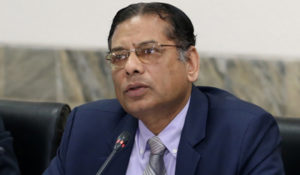Published in Bangladesh Post on Wednesday 5 December 2018
‘Education as per demand’
Belal Muntasir
 The country’s education system needs reconciliation with market demand to eradicate unemployment among the highly educated, experts and educationists said.
The country’s education system needs reconciliation with market demand to eradicate unemployment among the highly educated, experts and educationists said.
Collaboration among universities and industries is urgent in this regard, they opined.
“Our education system should be reconciled considering the industry demand. Besides, technical and demand-oriented subjects have to be more focused along with ensuring quality education,” said Professor Mustafizur Rahman, Executive Director at Centre for Policy Dialogue CPD, while talking to Bangladesh Post.
Unemployment in the country has increased at an alarming rate in the past few years, and the number of jobless youths with higher education stood at 10.7 percent, said an ILO report released 10 days ago.
Besides, Bangladesh Bureau of Statistics (BBS) conducted a survey early this year where it found 40,000 youths, who obtained their graduation degrees, unemployed in the 2016-17 fiscal. It said the number is rising day by day.
Former Vice-Chancellor of Dhaka University AAMS Arefin Siddique believes that a substantial gap remains between the higher education systems and employment opportunities.
“We could not increase such types of jobs graduate students actually prefer,” he told Bangladesh Post.
However, Siddique thinks that the university-industry collaboration needs boosting to eradicate the rising problem.
He said, one of the big reasons behind the problem is that the oncoming investments are generating very few employments for university-passed students.
They (existing industries) need vocationally or technically educated workers, who are Secondary or college level passed, in more numbers, rather than higher educated people.
The higher educated expect higher level jobs, not sufficiently generated, he added.
On the other hand, many organizations have to hire expert officials from abroad as the country’s higher educational institutes cannot produce expected-level expert job aspirants, professor Siddique said.
He believes that the country’s students are not getting sufficient practical education at the university level, which is a big weakness, so, they are not becoming highly skilled in their respective fields.
“Therefore, we need good collaboration with the industry-holders so that we can produce industry demand-oriented higher educated people to eradicate unemployment,” he added.
“We actually need to develop our manpower skills in keeping with industry requirements,” Executive Chairperson of the Centre for Development and Employment Research (CDER) Rushidan Islam Rahman said while echoing AAMS Arefin Siddique.
Experts said from their observation, highly educated youths are keen on working in service-oriented sectors rather than in manufacturing or production sectors.
In the service sector, requirement of skill level is much higher, they said.
Besides, the number of jobs is less compared to the number of graduates available in the market. So, a large number of graduates are doing low-skilled jobs with low pay, while some even have to remain unemployed.
Professor Mustafizur Rahman suggested two solutions to eradicate unemployment among the higher educated.
There are two solutions—generating employments by government and private industries, and self-employment, he said.
Recruitment in almost one lakh government service vacancies will be a quick solution to the unemployment among higher educated people, he said.
Besides, the government can introduce short-time specialized training and send them abroad as skilled manpower, Professor Rahman suggested.
Besides, increasing industrialization and bringing diversification in agriculture sector will generate employments, he believes.
Industry can generate employments with increasing investment. So, government should focus on investment raising, especially in the private sector.
On the other hand, if the educated youth come forward to create self-employment with their innovative entrepreneurship, they can relieve themselves radically, he added.
But here the government has to promote them with providing policy supports for collateral-free and easy-term loan, giving incentives etc, Rahman said.


